As my fingernails recovered from the thrilling 3-2 comeback at Upton Park on Sunday, a thought crossed my mind.
Margins.

There are a number of fickle Liverpool fans who seem to forget that this wonderful game we shed tears for is highly sensitive to margins. The small differences in a game that often mean the difference between a pass or an interception, a goal or a save, winning or losing. Whether it’s luck, officials, defensive mistakes, a goal of brilliance, a dramatic save, or a combination of all of them, football isn’t always so predictable that you can underestimate the margins. Few may remember who finished second, but consider that even those teams who win often rely on the margins (or do we think Pep Guardiola isn’t still having nightmares about that European semi-final played nearly exclusively in Chelsea’s box…?)
Maybe I’m one of the stubborn ones, but I’ve just not given up on this new Liverpool vision. There are a fair number of Liverpool fans who’ve backed it from day one, and even without the rose-tinted glasses, the signs of positive change are there if you look carefully. It’s not about being blindly faithful. There is absolutely the chance it could all fail miserably and we end up casting envious glances at a revitalised #9 with a favoured manager in a blue part of London, while reflecting on more years of patience. But Liverpool fans should be – and need to be – that special breed that don’t give up on the team just yet.
A story about margins – West Ham vs. Liverpool
During Sunday’s game, the response on Twitter was a curious study of human nature. Once the atmosphere became jaded towards the 70th minute, already I spotted the inevitable tweets aiming salvos towards the Liverpool hierarchy. Between “#RodgersOut” and various comments about, or directed at, FSG’s owner, the feelings were clear that Liverpool were destined to go nowhere under the current management.
About 10-15 minutes later, the doubters had either disappeared or turned magically into Rodgers evangelists.
These are the margins that have defined the season. It’s a pity that some fans forget this.
After being up against it, Liverpool strung together those perfect combinations of passes, building up from the back (count the passes – it was fantastic) to score the equaliser and winner. There was little margin for error in substituting a tired Lucas for Henderson, but the latter’s energy proved invaluable in those last few minutes. Consider the margins in Sterling’s intelligence to weave a pass between the tired legs of the West Ham midfield (not to mention a great run from the maligned Joe Cole). Or better yet, how a “one-man” Liverpool team without their talismanic striker improved their attacking movement in the final 3rd, to the extent that THREE goals were scored, without Suarez, away from home, against a very determined West Ham side.
But those are three points earned, fighting back intelligently. I doubt, with respect, that last season’s side would have been able to pull that off. Sure, under Dalglish, Liverpool would have been energetic, playing very direct and bombing in the chances – but all ultimately hoping for the best, and relying on someone’s individual brilliance. Liverpool have been far more adept at recovering games this season. Last season, Liverpool trailed in 16 league matches, and only 4 times (Man City, Blackburn, Newcastle, Aston Villa) was there a successful (draw or win) Liverpool comeback. This season, Liverpool have trailed in 7 league matches, but already managed to salvage 4 of those for points (Sunderland, Newcastle, Chelsea, West Ham). In cup competitions, this comeback spirit was also illustrated against West Brom (League Cup), Hearts and Young Boys (Europa League).
The devil is in the detail
The West Ham “story” is just one of many this season, but if a serious examination is done, Liverpool are playing better and better football. The results have been undermined by 3 broad issues; the squad mix, defensive execution, and a mix of officials and luck.
This time last season, the horror stories had already started about the woodwork. But this was a symptom of the system used – Liverpool appeared to be a side focused on creating as many chances as possible. But those chances weren’t always the best ones, or the easiest to convert – and while I accept this is a broad criticism of Liverpool under Dalglish, this season the team seems far better at focusing on creating a better quality of chance. If we’re not crying about the woodwork this season, then clearly something has improved.
Tactically, the main issue has been defensive errors. The squad mix highlights the lack of goalscoring firepower, which automatically means that if Liverpool are to win games, more often than not the defence needs to be more solid, since it’s generally less likely that the team is going to be able to find more than one goal a game (making the West Ham result all the more unusual!). But defensive errors were far too common, especially earlier in the season, forcing the need for more goals in a team that is lacking them.
West Ham was a clear example. Liverpool started well, but despite Johnson’s bombing attacking play, he failed to prevent crosses from deep. That continuously exposed an aerial frailty, which ultimately assisted towards the goals conceded. Even though there was controversy around the penalty, the fact is that Liverpool at that point were retreating more and more into their half. West Ham sniffed blood, and their aggression paid off, even if it was fortuitous. Liverpool needed to respond better.
Defensive errors are the real culprit for the points dropped against WBA, Man City, Arsenal, Man Utd, Everton, Newcastle and Spurs (again, notwithstanding some ‘disappointing’ officials as well). The Europa League also reveals this – Udinese (home), Young Boys (home) & Anzhi (away) all featured poor defensive mistakes.
The truth about Liverpool’s form
Yet, in all those matches (maybe with the exception of Anzhi away, where Liverpool used an extremely second string lineup), Liverpool also had some great performances.
Liverpool have lost only one of the last 11 league matches, against Spurs. The only difference between that one and the other 10 PL games is that silly defensive mistakes far too early in that match left Liverpool far too much to do to get the game back. Other matches where Liverpool drew weren’t wins due to lack of firepower (Sunderland, Stoke, Newcastle, Chelsea, Swansea) or bad luck / defensive errors (Man City, Everton). But it would be difficult to argue against Liverpool having been worthy / dominant opponents in all those matches.
In fact, the only match thus far this season where Liverpool have been totally outplayed, was ironically, at Anfield, against Swansea when Rodgers’ old club were simply outstanding against his new employers. Liverpool’s performance against Arsenal wasn’t poor – the team looked tired from their heroics against Hearts 3 days prior, and the goals conceded were relatively soft.
The recent form is encouraging – in the last 11 games – Liverpool have taken 20 pts, only behind Man Utd (27) & City (24). In terms of the full table, that’s 4 points away from 4th place… with NO penalties to help, too. That’s hardly a sign of a poor team, or a team going backwards. It’s also nonsense to suggest the form is due to a “poor league”, or that “other teams are poor”, making Liverpool look better. The Premier League is very competitive, hence its appeal. Man Utd’s experience (and luck) is counting for them, yet a 10 man Liverpool more than matched the league leaders at Anfield for over an hour. A promoted West Ham more than matched Liverpool at many stages on Sunday.
And consider this – Man Utd have scored 3 goals or more in 10 league matches this season… but they’ve also conceded 2 goals or more in 8 league matches. They’ve had a winning scoreline of 3-2 on 5 occasions already (the stats worsen when you add in Europe and League Cup form). Their attack is compensating for terrible defence; with Liverpool it needs to be the reverse and it’s only been evident in the last few games that Liverpool seem to be getting to grips with this. Man Utd would probably have dropped more points had the likes of Reading, Southampton, Aston Villa, Chelsea and Man City been far more effective at containing the Man Utd attack.
Plan “B”

The other aspect that has emerged, after some debate, is that issue of a plan B. It was lamented extensively last season that Liverpool did not have a plan B when things weren’t working out. Instead, with the rare exception, Liverpool seemed to try and create as many chances as they could and hope for the best.
It seemed to be going the same way this season, and then Liverpool’s young manager played his tactical hand a few times. After ending the 1st half on the ropes against Everton, a formational switch nullified the Everton attacks in the 2nd half, and nearly won the match. After a dire 1st half against Wigan, Rodgers took off Suso early on (which certainly appeared unpopular) for Henderson, only for the latter’s hustle to prove invaluable in contributing to goalscoring positions. There were similar tactical switches against Newcastle, Chelsea, and of course, West Ham on Sunday.
All of which points to the suggestion that, with a deeper squad, Rodgers’s tactical nous may well make him all the plan B Liverpool requires. If you’re not convinced by his tactical adaptability and purpose, in various shades, this season we’ve seen Liverpool play 4-3-3, 4-2-3-1, 4-3-2-1, 3-5-2 and 4-4-1-1. Against West Ham and Anzhi, we used false 9’s. Last time I checked, teams like Barcelona and Spain got away with false 9’s, not Liverpool. Yet, Rodgers’s read of the game is good enough to at least try things like that. If these examples are anything to go by, they provide encouraging signs of his tactical abilities.
Rodgers is not immune from criticism and weaknesses, however. My main concern with him at the moment is some of his stubbornness. His insistence thus far to use Sahin as an attacking midfielder as opposed to a deep lying playmaker could have impacted the Turkish player’s form (and ironically, Joe Allen, who’s played in the deep position for much of the season while caretaking for Lucas). Rodgers seems unwilling to use Assaidi at the moment, and this is not only possibly undermining a great talent, but also contributing to the overuse of Sterling. The youngster has been impressive, no doubt, but his form in the last few matches has been intermittent, and for all his youth, he’s cut a tired figure in recent matches. Rodgers has also seemed reluctant to use Jack Robinson – and while Downing has had some unexpectedly reasonable moments deputising at left back, Robinson offers far more in that position.
Rodgers’ other challenge is that of being largely unable to drop Gerrard; a relevant concern since the number of mistakes the skipper has made is enough to make some die-hard Liverpool fans worry. One hopes Rodgers finds form in Henderson or Sahin that challenges Gerrard to step up … failing which more courage to drop the Liverpool captain when the performances aren’t good enough. Hopefully all these things change as the season wears on, although some are very unlikely.
Highlights… and high hopes
Liverpool’s season thus far will never be so rose tinted that 10th place becomes acceptable, but while patience and perspective are needed, there is evidence that Liverpool possess aspirations and a plan to move up the table. Liverpool have grown with confidence, and their comfort with the system has also improved well. Again, there’s only really been one match where Liverpool were outplayed – most other matches have either been dominated by LFC, or arguably contested 50/50. The matches against Udinese in Italy, West Brom in the League Cup, and Reading, Wigan and Southampton in the league have been the best examples of Liverpool’s near-perfect execution of the system (we’ve seen shades of Rodger’s “death by football”, excellent game management and some mental steel). While beating opponents like these doesn’t sound spectacular, Liverpool doesn’t exactly have a track record of always winning those games (especially against Wigan).
There is of course the fantastic improvement in passing as well. Liverpool were good with possession under Dalglish, but they’ve exceeded that superbly under Rodgers at times. Rodgers has found a great formula to get goals out of Luis Suarez, and the Uruguayan still looks like he has many more goals and assists to contribute, especially when you consider his clear-cut chance conversion rate is the weakest of any of the top scorers in the league. Rodgers has also encouraged the emergence of talented youngsters (Wisdom, Sterling, Suso, Shelvey in particular).
It makes me hopeful for the rest of the season. Liverpool have started December well (3 wins in a row in all competitions) and this needs to be sustained, especially when matches against Aston Villa, Fulham (both at home), Stoke and QPR (both away) are next on the schedule in the month. They’re all winnable games, but clearly not to be underestimated. Last season, the corresponding fixtures produced 1 point from 12.
Assuming Liverpool enter January with as close to 4 wins out of 4 as we can, it will be critical to carry that form into a difficult period from mid January to mid February when Liverpool travel to Old Trafford, the Emirates and the Etihad. Mental strength will be crucial, not to mention a good (but realistic) transfer window. Liverpool probably need 2 forwards, proper cover for Lucas in defensive midfield and possibly another left winger / left back, but I think realistically only 2 of those signings are likely (hopefully it’s the forwards!).
If Liverpool enter February relatively unscathed, while 6th place is realistic, who knows what will happen if Spurs, Arsenal and Everton are inconsistent…
You never know. Back the team anyway – remembering that sometimes, the margin for error is small.


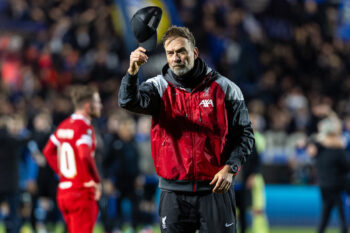

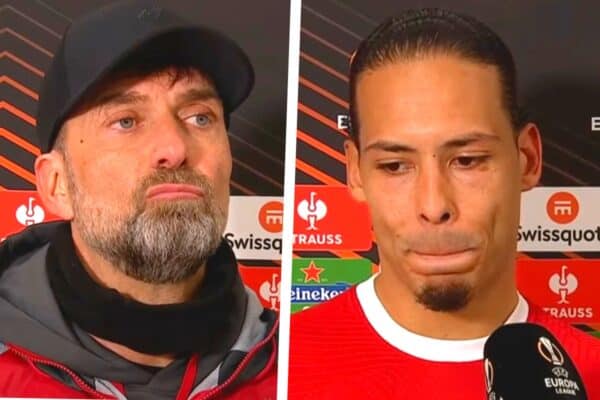

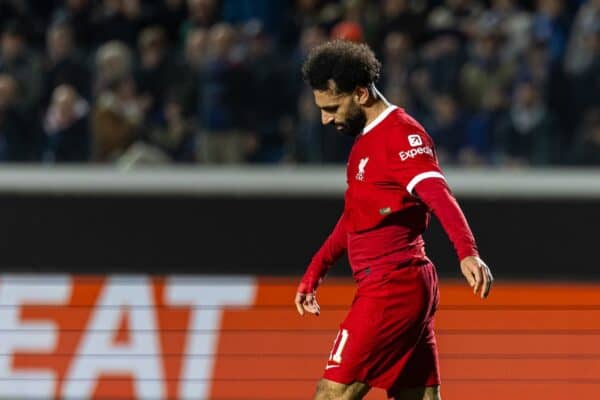

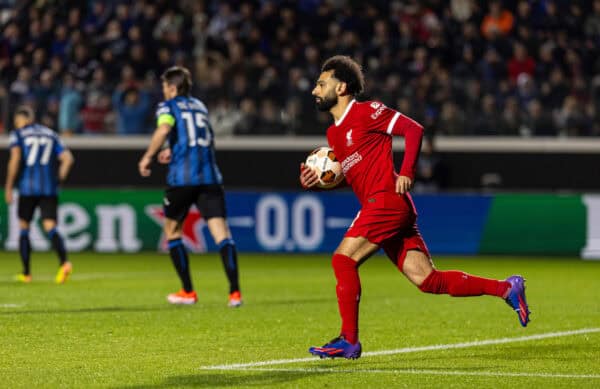

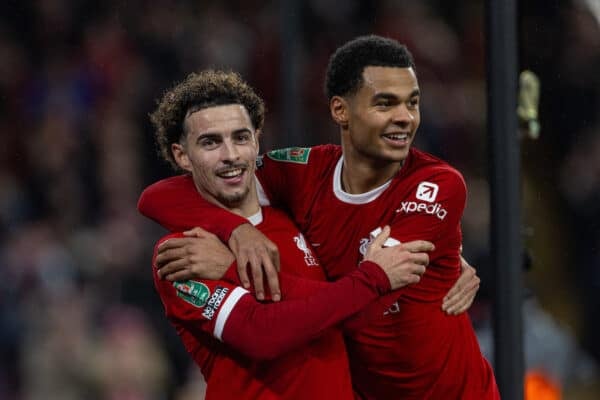
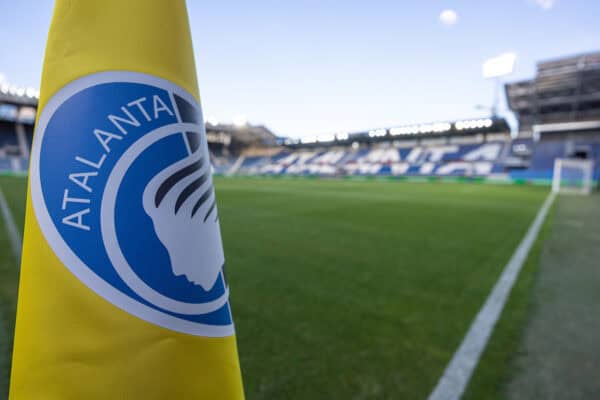


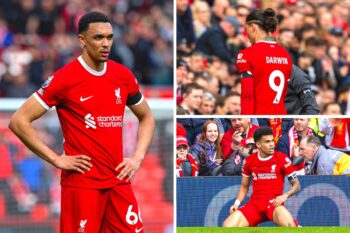
Fan Comments